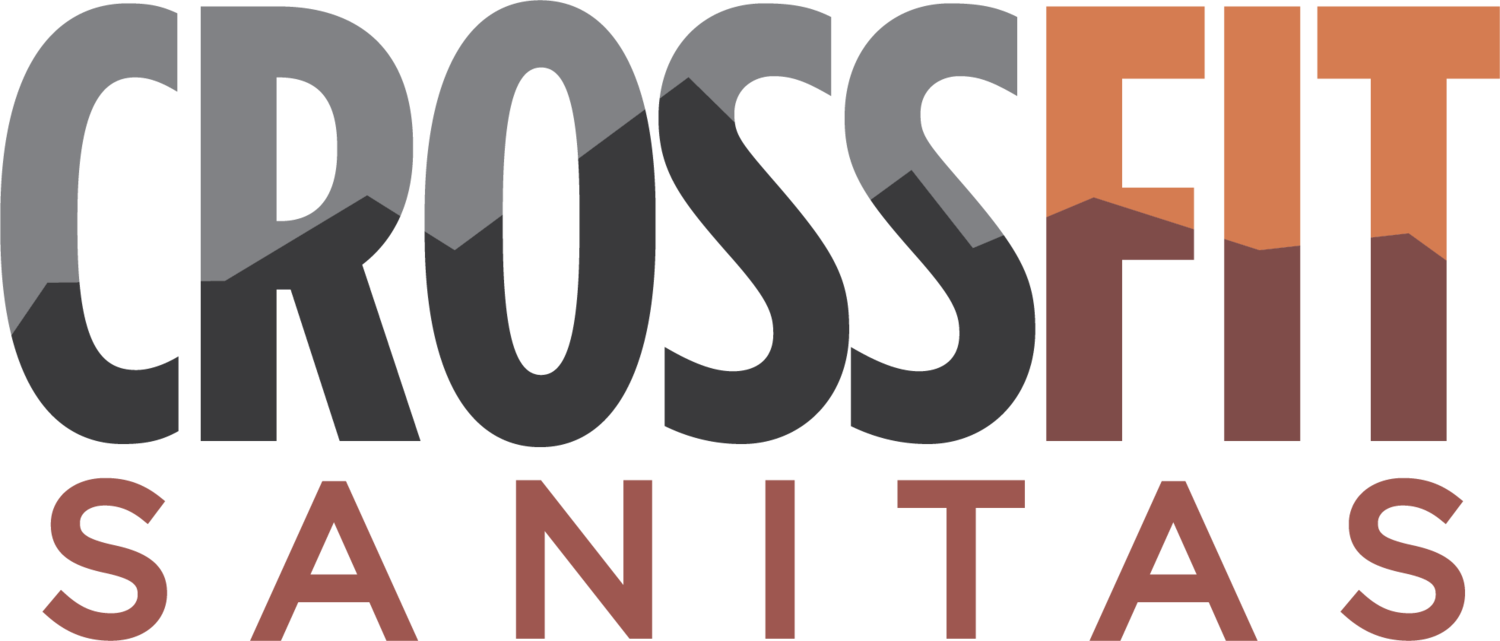Why Paleo Matters
Chris Kresser and Robb Wolf were here last Saturday and while it would be impossible to share everything they covered in 8 hours, here are a few tidbits...
WHY PALEO?
| Category |
Avg. Nutrient-Density Score |
| Organ meats (so eat liver) |
21.3 |
| Herbs & spices |
12.3 |
| Nuts & seeds |
7.5 |
| Cacao |
6.4 |
| Fish & seafood |
6.0 |
| Beef |
4.3 |
| Lamb, veal & wild game |
4.0 |
| Vegetables (raw) |
3.8 |
| Pork |
3.7 |
| Eggs & dairy |
3.1 |
| Poultry |
3.1 |
Maximizes Nutrient Density: Here's a subset from Harvard University chemist Dr. Lalonde's recent analysis of nutrient density in foods. As you can see, the foods that make up a paleo plate are highest in nutrient density.
Category
Avg. Nutrient-Density Score
* Legumes 2.3, Vegetables (Cooked) 2.0, Fruit 1.5 and Grains 1.2. Phytonutrients were not considered in this chart and therefore, fruit and vegetables would rank higher with those factors considered. Also, if you factor in bioavailability, then nuts, seeds and grains would get a lower score because they contain phytates which bind to nutrients and inhibit absorption.
Reduces inflammation: which is at the root of all chronic modern disease and is found in processed foods, excess sugar, and is found in industrial seed oils like canola and safflower oils.
Evolution: for 66,000 generations we lived in tribes and survived on tubers, vegetables, fruit and meat. Today 1 billion suffer from diabetes, 1 in 6 from autoimmune disease, and 50% of an American’s calories are from processed foods. We sit too much, we are isolated socially and we don’t get enough sleep. We don’t know what they ate, but we definitely know what they didn’t eat...pringles, big gulps and big macs.
MAINSTREAM MYTHS - WHAT DOES THE RESEARCH REALLY SHOW
There is no relationship between saturated fat and cholesterol.
Red meat does not cause heart disease or raise your inflammation levels, however, charred meat becomes oxidized and should be avoided.
Whole grains are not superfoods. They didn't even make the above nutrient-density chart.
What about The China Study? This research was done by a vegan with an agenda and he cherry-picked the data to prove his point. For instance he cited studies where rats were fed extremely high levels of casein which is inflammatory without the counterbalancing whey (dairy products would contain both casein and whey).
PALEO MYTHS
Paleo is a diet. False, paleo is a template for understanding a possible better way to live that can then be investigated by modern science.
Paleo should be low carb. False, most people do best with a moderate carb intake from real foods. Moderate would be 15-25% of total calories, >25% for active, lean people, and lower for weight loss and people dealing trying to address mental issues.
Fructose is toxic even in whole fruit. False there is no research to support this.
WEIGHT LOSS STRATEGIES
You do need to eat fewer calories to lose weight but don't purposefully reduce your calories because your body has mechanisms that kick on and will fight to get you back up to your starting weight. Until the last 150 years, starvation was a major threat and our bodies have defenses that will kick in if you get too hungry.
Increase protein intake to 30-35% of calories to feel more satisfied and ramp up metabolism.
Don't snack between meals unless you have blood sugar issues or adrenal fatigue.
Get enough carbs from nutrient dense sources like sweet potatoes, tarrow, non-starchy vegetables, etc. Low carb is not good for people doing CrossFit, the intensity it too high.
Minimize added fat and salt, so adding some butter is okay, but adding 3 tablespoons of butter will backfire.
Focus on eating when you're hungry.
2 days a week choose only three foods or a stew, and eat only that for the 2 days. It's really difficult to overeat when the food isn't rewarding. Likewise this will work if you eat simply without a lot of added fat, salt and other seasonings.
Robb and Chris are not fans of intermittent fasting or skipping recovery meals
Get enough sleep! This is often overlooked and one of the most important factors. Try eating more carbs in the evening which can help with sleep. Read more about sleep here.
Go slowly 1/2 to 1 lb per week. If you go to quickly and let yourself get hungry, your body will try to adapt to prevent or prepare for starvation by:
Increasing appetite
Extracting more calories from the same foods
Expending less energy during rest
Check out this free ebook on Effortless Paleo Weight Loss from Chris.
WEIGHT GAIN
1-2g of protein and 2-3g of carbs per pound of body weight
Eat your recovery meal as soon as possible post-workout
Eat plenty of fat
40-60g of BCAA's — take these early and MRM is a good brand
SYMPTOMS OF ADRENAL FATIGUE
Not sleeping well
Low blood sugar issues
Difficulty recovering from exercise
Brain fog and/or bad memory
Cold hands and feet
Low or high cortisol issues
Gut problems
Hormonal imbalance
Depression and anxiety
Hypertension when you stand up
What to do if you have Adrenal Fatigue
Moderate carbs — not too high, not too low
More protein to stabilize blood sugar (try for 40-50g in the morning)
Eating more meals - cardinal sign of adrenal fatigue is when you can't make it to the next meal without getting hungry
Increase salt intake
Eliminate caffeine and alcohol - taxes adrenals and negatively impacts sleep
Make sleep a top priority - go to bed early, stay away from electronic light at night that disrupts melatonin, don't drink alcohol with dinner, sleep in a dark room with no electronic of external light.
THYROID
Many people don’t realize that symptoms like weight gain, hair loss, exhaustion, constipation, depression, or mental fog are frequently caused by a thyroid disorder or imbalance. An estimated 20 million Americans have some form of thyroid disease. One in eight women will develop a thyroid problem in her lifetime.
We are told to eat lots of cruciferous vegetables (broccoli, kale, etc.) due to their nutritional content. However, this may not be the best idea if you have a thyroid problem because these foods, and certain grains like millet, can inhibit the uptake of iodine in the thyroid gland. Steaming decreases the effect by 30% and boiling by 90% (but boiling also greatly reduces the nutrient value).
You can supplement with iodine-rich foods and look for an amount around 800mcg per day. Kelp, dulse, arami, kombu in soups and stews are good choices and also fish head broth. Kelp tablets from Now Foods also work. Be sure to discuss this with your health practitioner as you need to be careful with iodine supplementation if you have Hoshimotos. Eating ocean fish also helps with thyroid function because they are high in selenium.
Be sure to avoid low carb diets if you have issues with your thyroid. You need insulin to convert T4 into T3. Also, 20% of the T4 to T3 conversion happens in the gut, so make sure you're focused on a healthy gut. Here are some tests to ask your health practitioner about:
TSH (which should be between 0.5 and 2.2 - not 4.5 which was the initial "normal" range that included people that were sick)
Total T3 and T4
Free T3 and T4 (this is what's actually available to enter the cell)
Thyroid, TPO and TG antibodies
These antibody tests will tell you if you have Hoshimotos, but 25-30% of people that have this autoimmune disease never test positive. You can also get a thyroid ultrasound at Front Range Imaging in Boulder to check for goiter and nodules.
If you're interested in learning more about Thyroid Health, check out this free ebook from Chris.
GUT HEALTH
"All disease begins in the gut." - Hippocrates, 2500 years ago
Gut Microbiome - programs our genes, digests and absorbs food, impacts the development of cancerous cells, directly linked to brain and neurological problems (there is growing evidence that inflammation in the gut causes depression and anxiety). Also SIBO (Small Intestine Bacterial Overgrowth) has been linked to Autism Spectrum Disorder, 85% of people with Fibromyalgia have SIBO, and SIBO has also been linked to heart disease, Rheumatoid Arthritis...the list goes on.
When the gut barrier breaks down, you have malabsorption and hyperpermeability. Unbroken down foods sneak through the gut and your body mounts an immune response which leads to food allergies and sensitivities. Over time, the body become confused and starts attacking healthy cells within your body leading to autoimmune disease (thyroid - Hoshimotos, pancreas - Type 1 Diabetes, connective tissue - Lupus, brain - MS, etc.).
30% of people with leaky gut never have any gut issues. The symptoms often show up in the skin or brain because the gut, skin and brain are all linked together by our nervous system. So you may have solid digestion, but you're struggling with brain fog, ADD or skin problems like eczema, rosacea or acne and depression. It's often missed that this is actually a problem originating in the gut.
Things that negatively impact our gut:
Stress - which slow intestinal motility and decrease stomach acid
Vitamin B deficiencies
Antibiotics
Birth control pills
Very low carb diets
Vegan diets
Eating foods like gluten and dairy when you are intolerant or sensitive to these proteins
Being born by a c-section (vaginal birth provides your first wave bacteria) and not being breast fed (your second wave)
If you think you have issues, you can find a naturopath or MD that can do stool and blood work to figure out exactly what's going on. Ask Melissa for recommendations.
Read this free ebook from Chris on Gut Health.
STRESS
A few of the ways that stress affects us:
Increases blood pressures
Increases cravings by disregulating blood sugar
Increases inflammation
Increases fat storage in liver and abdominal area
Depresses immune function
Decreases stomach acid which can lead to acid reflux, GERD and SIBO
Impairs memory and brain processing
Can lead to anxiety and depression
How to reduce stress:
The stress you can avoid:
Learn to say no
Avoid people that stress you out
Turn off the news or get less news
Give up pointless arguments
Mitigate the stress that you can't avoid:
Lower standards
Reframe and change perspective
Practice acceptance
Get realistic about time management (check out more on this here)
Practice gratitude (part of reframing)
Tools for stress reduction:
Meditation (start slowly with just 3-4 minutes a day). Chris led us through three different types of meditation, so look around and find something that works for you.
Yoga
Massage
Exercise - not just in the gym but walk more, do your own yard work, take the stairs
Biofeedback
All of this and more is covered in Your Personal Paleo Code by Chris and The Paleo Solution by Robb Wolf. We sell both of those books at the gym. Also, if you sign up for one of our Clean Challenges, you will get access to the online Health Tracking Tools that Chris and Robb created, as well as their Paleo recipe generator with close to 800 recipes.






